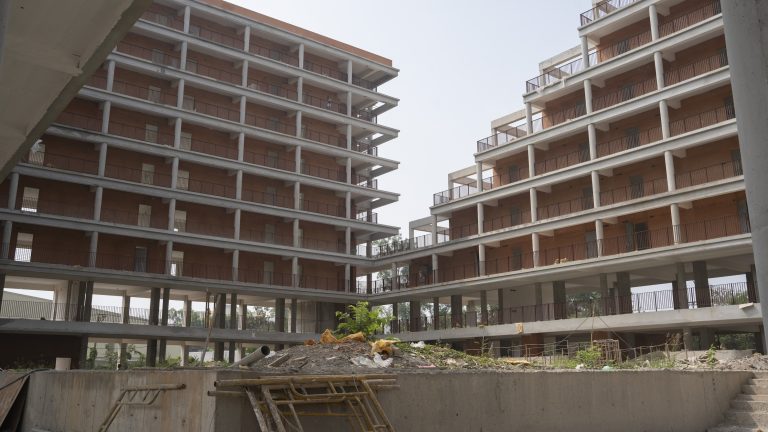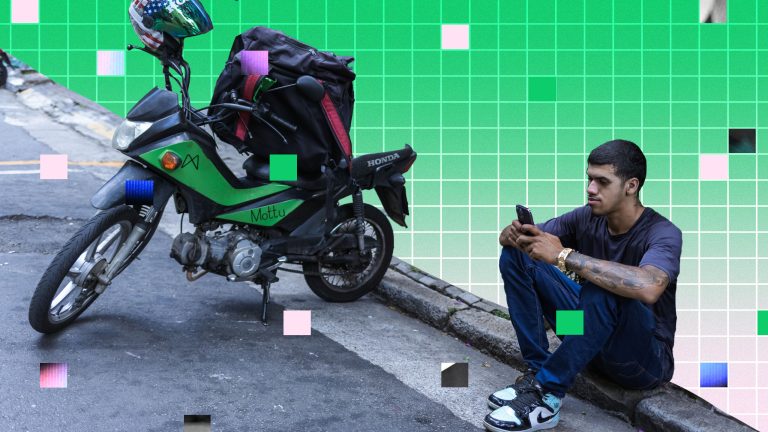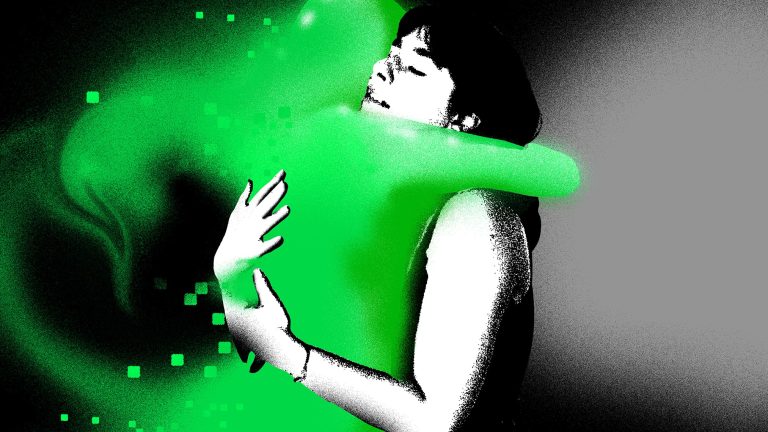On May 4, a Nigerian man became the first known person in the world to be sentenced to death via a virtual court on Zoom. The session was brief — it began at 11 a.m. and ended before 2 p.m. — and in the screenshots people posted online, Olalekan Hameed, 35, who joined the call from prison, appeared to be alone. He looked calm, and the ruling was later reported to have gone off without a hitch. Two days before the sentencing, a link to the proceedings was shared on Twitter, but it largely went unnoticed; most Nigerians were preoccupied with the easing of a five-week-long lockdown in response to the Covid-19 pandemic.
Open trials hold some significance for Nigerians, particularly those who lived through the decades of military dictatorships that followed independence and disrupted early attempts at democratic rule. Back then, court hearings for dissenters and political opponents were replaced with Special Military Tribunals (SMTs), and public access to proceedings was granted or withheld on the whim of a dictator.
In the 21 years since democracy returned to Nigeria, the collective faith in judicial processes has grown significantly, but the death penalty remains a polarizing issue; even when the court rules that an accused person will die by hanging, provincial governors shy away from authorizing it. That is why, for many people, the leap from SMTs to a Zoom sentence for a murder trial that was otherwise held in person seemed too wide, despite its intended purpose of expediting the judicial process during the pandemic.
Olalekan’s sentence concluded a trial that had lasted two years. In 2018, when he was working as a driver to pay his way through school, he was arrested for theft and murder after being accused of stealing from his boss and killing her mother. Olalekan’s elder brother, Taiwo, told Rest of World that just two days before his arrest, Olalekan had received his postgraduate diploma from the National Institute for Marketing of Nigeria and had been planning to join the workforce.
The case did not garner any major media or public attention, but Olalekan’s family followed the trial closely from the day it began on March 6, 2019, when he was arraigned at the Ikeja High Court in Lagos; Taiwo attended every hearing. After his arrest, Olalekan was detained at Ikoyi Prison, a run-down, overcrowded, medium-security facility where five inmates were electrocuted in 2019 because of faulty wiring in one of the cells.
But then, on March 30 of this year, Nigeria began enforcing a selective Covid-19 lockdown in three vulnerable states, including Lagos, where Olalekan’s case was being heard. As weeks passed, the timeline for lifting the lockdown shifted, as the Nigerian government struggled to stay ahead of the virus.
Everything changed on May 3, when Taiwo received an unexpected phone call from Olalekan’s lawyer, Anthony Ezemba, who told him that the sentencing would take place the following day. In shock, Taiwo immediately called Olalekan in prison and learned that his brother had not yet received the news about his own trial. The decision came days after the government announced a phased easing of the lockdown.
Seated in the tiny reception area of a law office on the Lagos mainland almost two months after the sentencing, Taiwo was still confused by what felt like a sudden judgment. He said, “I still don’t understand what went wrong.”

Problems in the Nigerian criminal justice system have been present for years, but Covid-19 has further exposed them. In an effort to decongest prisons over concerns of superspreading, Nigerian President Muhammadu Buhari on April 21 asked the judiciary to free prisoners who had been awaiting trial for more than six years. According to official numbers, Nigeria’s prisons held approximately 74,000 prisoners in December 2019, 42% of whom were awaiting trial. The judiciary also began to consider strategies to speed up trials.
In reality, the courts were not equipped to do so. An attempt in 2018 to automate basic case filing was meant to phase out the manual process, but that effort eventually fell apart, and most courts reverted to the old, paper-based system. While the United Kingdom, whose legal system is the model for Nigeria’s, has been moving steadily toward automating access to justice by pushing for digital self-serve platforms, digitized evidence gathering, and e-filing systems, similar efforts in Nigeria had not yielded many results. So how exactly did the judiciary intend to adjust to the new reality of Covid-19?
Osai Ojigho, director of Amnesty International in Nigeria, told Rest of World that mobile courts were the first new legal services to be implemented as a result of the president’s request. They were created to enforce social distancing and establish order in the midst of a shutdown by punishing people for defying Covid-19-related regulations, like a ban on traveling on interstate roads or curfew; such offenses could result in a fine of up to 3,000 naira (about $8), community service, or temporary detention served beneath a tree. The mobile courts went into effect on March 27, and the first session was held about a week later. Unlike virtual courts, which countries like the U.K. and Canada had begun to embrace in the face of the pandemic, the mobile courts were still held in person, in locations that changed constantly, by members of a Covid-19 task force.
About a month later, the chief judge of Lagos State announced that the judiciary would begin using virtual courts in addition to mobile ones, making it one of the first African countries to implement the service. People expected the Nigerian judiciary to test the waters with something relatively “light,” like a civil case — so the decision to begin with Olalekan came as a surprise.

Nigerian Twitter usually functions as a reliable gauge for how people feel about issues of national interest. But the day before Olalekan’s trial, reports of the nation’s first virtual court hearing had still not gained any traction online. In the hours leading up to the verdict, most tweets about the trial came from lawyers and a senior advocate, who encouraged people concerned about the credibility of a virtual court proceeding to watch it themselves. (She even shared her Zoom link and password.)
News of the case went viral only after TransparencIT, a Nigerian legal-advocacy tech organization, shared a series of tweets announcing the death sentence. The organization said it hoped virtual courtrooms would be opened to citizens in the future to ensure fairness and mitigate the growing concerns that the process was unconstitutional and inhumane.
The initial reaction to the virtual courts was mixed. Some attorneys and advocates in Nigeria’s legal community praised the move, believing it could give accused people quicker access to justice. Nigeria’s younger generation — vocal in its criticism of the judiciary for adhering to a colonial model characterized by its inability to carry out basic procedures and reliance on antiquated sentences — also commended it but raised concerns about its credibility.
Speaking to Rest of World from his office in Agege, a working-class suburb of Lagos, Ezemba said that digitizing Nigeria’s judiciary was long overdue and inevitable. At the same time, he argued that it was important to consider the defendant’s human rights. He believed the virtual trial had glossed over crucial legal options available during an in-person trial, like the plea bargain.
As virtual courts become more common around the world, so do concerns over irregularities that could result from virtual trials that do not consider the sensitivity of each case. According to the international advocacy platform Fair Trials, “Defendants’ absence from the courtroom seriously undermines their ability to participate in criminal justice proceedings effectively.” In Nigeria, there are particular concerns about the readiness of the justice system to hear cases virtually; it still lacks the digital framework required to do simple things like bring witnesses in for cross-examination. But Tobi Adebowale, who runs the well-known legal journal Lawyard, told Rest of World that Olalekan’s case had already gone through the hearing phase before the lockdown. He noted that, if the judge had reached her decision at that point, not much about the ruling could have changed, even if the sentencing had been held in person. Adebowale added that the Nigerian constitution gives a 90-day deadline for ruling on a case after hearings have concluded.
Taiwo only learned about the Zoom trial the day before it happened and said that even after he asked Ezemba to send him the link, so that he could follow along online, he was told that it was not open to spectators. Not that it would have changed his outlook on the case. “I really don’t think it should go that way,” he said.
Ezemba pointed out that the Nigerian constitution requires that judgments be delivered in an open court, accessible to the public. According to him, the fact that this part of the law was not upheld rendered his client’s trial unconstitutional and provides them with grounds for appeal. Plans to do just that, he added, are currently underway.
Just a few days after Olalekan’s sentencing, a Malaysian man was sentenced to death via Zoom, after a virtual court in Singapore found him guilty of drug trafficking. And in mid-July, ignoring the backlash to the outcome of Nigeria’s first attempt at virtual justice, the country’s supreme court ruled that these Zoom courts were, in fact, constitutional.
The pandemic may prove the catalyst that secured the place of the virtual court in legal proceedings.
There is also a growing realization that the meaning of “an open court, accessible to the public” is changing fast. The pandemic may prove the catalyst that secured the place of the virtual court in legal proceedings. Faced with this new normal, human rights advocates are of the opinion that giving the public greater access to virtual trials could address some concerns about their fairness, as countries like Nigeria increasingly adopt them. Ojigho, the Amnesty International director, said public virtual trials ensure that “justice is not only done but seen to be done.”
But lawyer and human rights advocate Ayo Sogunro is wary of the presumption that public access to a virtual trial or ruling guarantees fairness, or is essentially the same thing. “While the interests of the public in seeing justice done and the interests of the accused in having a fair trial should coincide, this is not always the case,” he told Rest of World.
Nigeria’s decision to transition to virtual courts is not the problem in Olalekan Hameed’s case, Sogunro pointed out; the death penalty ruling is. “This is just one more example of how a process that could work for any other kind of punishment becomes perceived as unfair when the death penalty is involved.”



